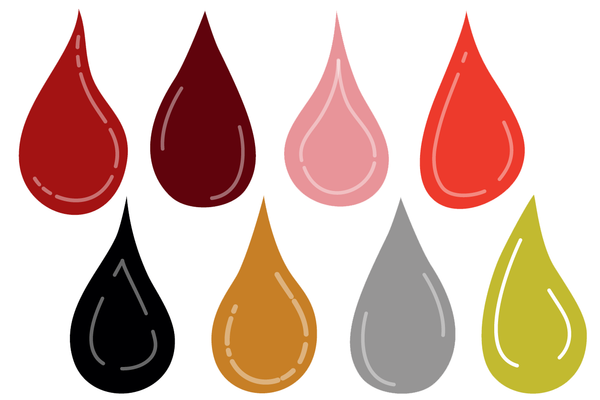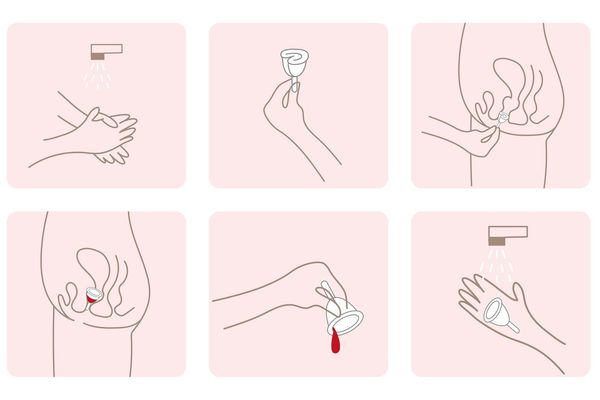Six years ago, Nkem Osian noticed a dramatic change in her period. She began bleeding for two weeks at a time and producing painful clots the size of her fist. There was bleeding between periods and the amount of blood overall was unnerving: Osian was going through two pads an hour and sometimes bleeding through her clothing.
Despite the symptoms and disruption in her everyday life, Osian did what a lot of women do: chalked it up to the inconvenience of menstruating and suffered in silence. "There is also a level of shame and embarrassment that caused me to initially keep silent about what I was going through," she said.
The silence nearly killed her: Osian's heavy uterine bleeding (also called heavy menstrual bleeding and previously called menorrhagia) continued for five months before she was admitted to the ER in danger of cardiac arrest. The lack of blood in her body had led to severe anemia and an enlarged heart (cardiomegaly), and she required a blood transfusion. The medical team said a large fibroid on the surface of her uterus was to blame. Looking back, if Osian had felt comfortable having a conversation about her period, she could have recognized the symptoms earlier.
"I was not taught about reproductive/sexual health in school or in my family," Osian said. "I am Nigerian-American and in my culture, periods and reproductive health are a very taboo topic. As a woman, it is in poor taste to talk about periods so publicly. It is looked down upon. You keep private matters such as periods to yourself. As a result, I did not understand what was 'normal' versus 'abnormal' menstrual bleeding."
Normal is complicated
It turns out a "normal" period varies per woman. As a guideline, the average period lasts four to seven days and varies in flow (heavier at the beginning, lighter toward the end). The amount of time and the flow can vary and still be considered normal, but abnormal symptoms include:
- Missing your period for 90 days in a row
- A drastic change in flow (heavier or lighter)
- Periods that start less than 21 days apart or more than 35 days apart
- Bleeding for more than seven days
- Excessive pain and cramping
- Bleeding between periods, after sex and after menopause
Overall, signs that something is wrong include an increase in flow (heavy uterine bleeding or HUB), ongoing irregular periods and a lack of bleeding. These can signal an infection or underlying condition which, if left untreated, may lead to serious health complications, including infertility.
Lack of discussion can lead to delays in treatment
Even though a thoughtful conversation can lead to a better quality of life, the stigma surrounding periods plagues women around the world. A 2018 poll found that 58% of women in the United States felt embarrassed for even having a period.
There are many reasons, including a lack of information and education, for period stigma, and they can have dangerous medical outcomes for women, such as a delay in diagnosis and treatment.
Case in point: A 2020 study found that period stigma led to inadequate care for women with HUB citing both the patient and healthcare provider being unaware of what defines a "normal" period so the condition goes undiagnosed. The study also found that only four out of 10 women sought treatment for HUB because of period stigma.
Patricia Geraghty, MSN, medical director of Women's Health, Comprehensive Wellness and member of HealthyWomen's Women's Health Advisory Council, said fibroids and endometriosis are two commonly missed conditions due in part to the painful symptoms that have been normalized as part of menstruation. "Endometriosis is highly missed," Geraghty said. "I think that the actual numbers are that it takes 10 to 15 years for a woman to present symptoms of endometriosis before achieving a diagnosis. That's pretty shocking, isn't it?"
Researchers who analyzed stigma among Latina women and endometriosis found that spouses and family members minimized or dismissed their pain because they perceived pain during menstruation to be something normal for women to endure.A new normal
Although period stigma won't disappear overnight, Geraghty said we can start by approaching reproductive health as a conversation, not an event, at an early age. "You want to be a trusted source of information and how you establish that trust is by talking to kids calmly and in an ongoing manner," she said. "And that not only gives them accurate information, but it helps destigmatize."
Although it's a fact that most women still find it uncomfortable to talk about periods, what matters most is starting the conversation. "This is how you get rid of stigma," Geraghty said. "The first step is to discuss, and I think women really are talking more about their menstrual cycle changes and what's happening."
For Osian, her near-death experience inspired her to become a patient advocate with the White Dress Project, an organization that raises awareness about uterine fibroids. "You do not have to suffer in silence, nor do you have to go through this alone," she said. "There are so many women going through what you are experiencing. By sharing our stories, we have the opportunity to educate and empower each other as well as heal together."
This resource was created with support from Myovant Sciences.
- All About Periods ›
- Clinically Speaking: Questions to Ask Your Healthcare Provider ... ›
- Dispelling the Shame of Menstruation - HealthyWomen ›
- Why Do We Feel Embarrassed About Our Periods? - HealthyWomen ›
- Putting a Stop to the Stigma Around Menstruation - HealthyWomen ›







